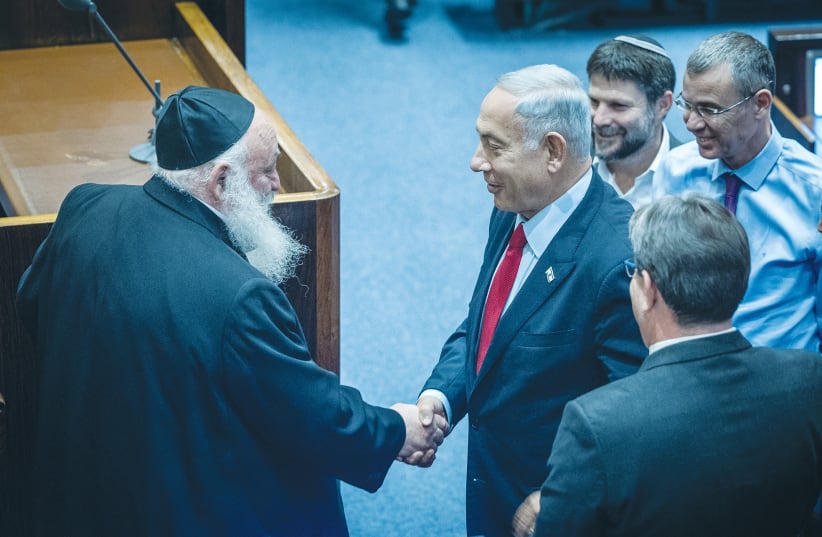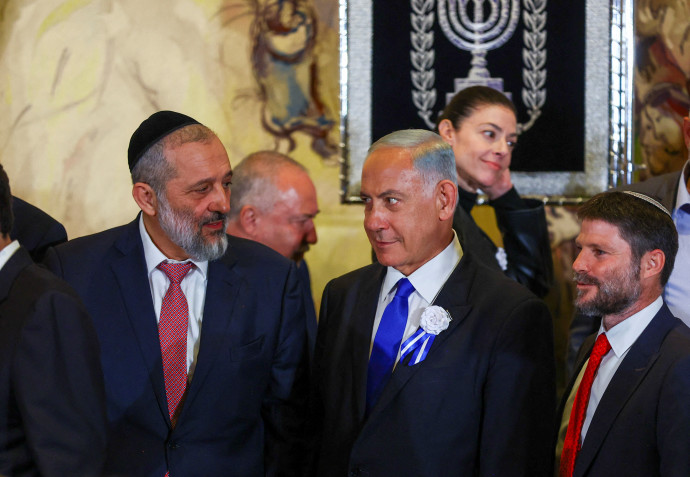Israeli Prime Minister-designate Benjamin Netanyahu pledged to the leaders of the ultra-Orthodox parties on Thursday that the next government under his leadership will follow a policy according to which "no one will go to prison for learning Torah," according to Walla.
Netanyahu's pledge was made during talks with representatives of UTJ and Shas during discussions on the exemption of yeshiva students from military service in the IDF.
As of Thursday morning, UTJ holds a fairly optimistic overview of the progress in the coalition negotiations. After long hours of discussions conducted in recent days by senior members of the party with Benjamin Netanyahu and other Likud members, agreements were reached regarding most of UTJ's coalition demands.
According to some of the agreements reached, the government will advance a basic law on Torah study, designating studying in a yeshiva as a core legal value, proving it difficult for the High Court of Justice to invalidate the arrangement that exempts Torah students from serving in the IDF.
Israel's ultra-Orthodox to be exempt from recruitment targets and sanctions
Although the parties have yet to reach a final agreement on the wording of the law itself, it appears that the demand that it does not include recruitment targets and sanctions will be accepted.
However, in order to allow the ultra-Orthodox to guarantee control over the wording of the proposal even after the formation of the government, it was decided that the conscription law would be promoted on the eve of the approval of the next budget, so that the ultra-Orthodox would support it subject to progress on the conscription issue.

